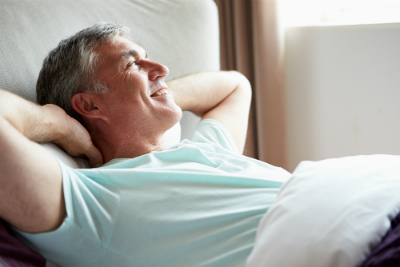Tips for Sleep Apnea
There are many things that can alter how your sleep apnea affects you. Actions that may impact your sleep apnea therapy include but are not limited to:
- Drinking alcohol
- Gaining or losing weight
- Changing medication
- Changes in sleep length
- Changes in diet
- Lack of activity
- Changes in daily routine
|
When in doubt, check with your doctor to see how your lifestyle might impact and affect your therapy, or be sure to tell your doctor of any other symptoms or changes that may occur. Different aspects of your lifestyle might impact therapy but it could be as simple as a little tweak in your pressure therapy to get you back to getting the sleep you deserve and feeling your best. |
 |
Talking to ARC Network Registered Respiratory Therapists and our certified sleep consultants can help you through this process. We take the best of both worlds between technology, habits, sleep and medical direction to help you customize and be compliant so that optimum therapy is achieved.
With personal relationships, using CPAP equipment in front of your spouse or others may cause you to be self conscious. You may worry that your spouse or partner will be “turned off” by the appearance and size of the equipment. We advise and educate our patients to bring their family members in so their spouses are not given a “shock” when they see them geared up. Education is not only for the patient but for the patient’s family and friends so they understand the disease process, treatment, therapy and outcome of what is going to happen to our patients. In the end, our goal is to provide quality of life and compliance for effective treatment of CPAP therapy. YOU and your health are always our main concern!
Tips from Dr. Phil Westbrook, Chief Medical Officer of Advanced Brain Monitoring:
- Always inform all your physicians that you have sleep apnea and how that disorder is being treated. If possible, show him/her the copy of your compliance report so that they may be well aware that you are effectively being treated.
- Tell your spouse or responsible person the details of your diagnosis and treatment so that they can inform the physician in an emergency situation.
- Avoid narcotic pain medication such as morphine, which can lead to life threatening hypoxia (low oxygen) even in patients with mild sleep apnea.
- Avoid alcohol beverages (or use with moderation) within three hours of bedtime.
- Avoid sleeping pills (or use with caution) and other medication known to cause sedation.
- If you smoke, quit. You are three times more likely to have sleep apnea if you smoke than if you have never smoked or stop smoking. We can help you with a smoking cessation program or direct you to a smoking cessation program closest to you.
- Avoid sleeping at high altitude. Altitude can make loss of oxygen that may occur with sleep apnea worse.
- If your sleep apnea causes you to be sleepy, avoid operating a motor vehicle or other machinery potentially dangerous to yourself or others until you are adequately treated.
- If you are being treated with CPAP, always take your machine with you if you are being admitted to a hospital.
- If you are overweight, lose weight. Sleep apnea is strongly linked to obesity. Therefore changes in your weight may affect the severity of your sleep apnea.
|
